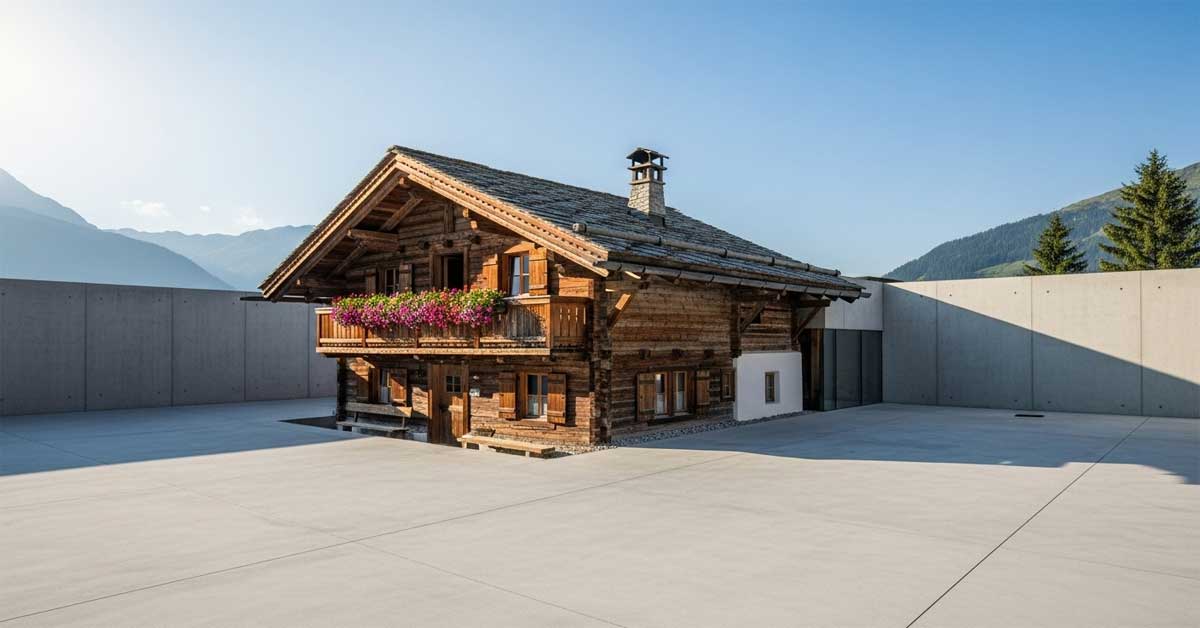

7 July 2025  Eleven Hectares a Day: Austria's Alarming Soil Consumption"Land der Bagger, Land der Straßen" (Land of diggers, land of roads) – that's how the WWF's newly rewritten Austrian national anthem begins (video on natur-statt-beton.at). As part of an art intervention, the environmental organization had the V.O.I.C.E. Choir perform this reimagined version to highlight one of the country's most pressing environmental crises: excessive soil consumption. According to the WWF Soil Report 2025, Austria consumes an average of 11 hectares of land per day—more than four times the official political target of 2.5 hectares. If current trends continue, Austria could lose an additional 1,000 km² of natural land by 2050—equivalent to four times the current built-up area of Vienna.Austria ranks among Europe's top soil consumers per capita, despite its relatively small size. For comparison: Germany, with ten times the agricultural land area, consumes around 75 hectares per day, while Austria already uses 11. Much of this land is not only built over but sealed off, disrupting the water cycle, reducing biodiversity, and increasing urban heat. The WWF identifies uncontrolled expansion of industrial zones, sprawling residential developments, retail parks, and roads as major contributors. Meanwhile, the goals of climate adaptation and biodiversity protection remain sidelined in favor of short-term development interests. Concrete Before Culture: The Drying Out of Independent Media and ArtsWhile soil and nature vanish under concrete, a similar process is happening in Austria's cultural and media landscape. Many small productions, independent artists, and alternative media outlets face an existential crisis as public funding shrinks and becomes increasingly concentrated in the hands of large institutions and established players. Support is increasingly funneled into a few select groups under the logic of efficiency and calculability. While this may offer administrative clarity, it undermines the diversity and innovation that smaller initiatives bring to Austria's cultural ecosystem. Much like the environment, the independent arts and media scene is drying out, unable to thrive in a system that prioritizes prestige and control over pluralism and experimentation.Digital Resistance: A Petition for Nature Over ConcreteThe WWF's Soil Report 2025 outlines 22 solutions for reversing land degradation—many of which fall under political responsibility. These include a binding soil protection agreement between federal, state, and municipal governments, a reform of spatial planning laws, incentives for land-saving development, and a national biodiversity initiative. Among the priorities are better coordination of construction permits, mandatory environmental impact assessments, and legally enforceable limits on daily land use. In this context, the WWF has launched the petition "Natur statt Beton" ("Nature instead of Concrete"), urging the federal government to adopt a soil protection treaty that limits land consumption to a maximum of one hectare per day by 2030.In Austria, a petition with 65,000 signatures can trigger a parliamentary hearing—an important democratic tool to raise public pressure and push issues onto the political agenda. Even in a drying landscape of nature and culture, digital platforms still offer citizens the means to speak up, organize, and demand change. 🡒 Petition: natur-statt-beton.at Image: The AI-generated image serves as a visual metaphor for the article 'Land of the Diggers: How Austria’s Soil and Culture Are Being Paved Over.' It depicts a traditional Alpine chalet, a symbol of Austria's natural and cultural heritage, seemingly entombed within a vast, sterile concrete courtyard. Photo: © Fashion.at generated with Imagen, Google AI Studio |